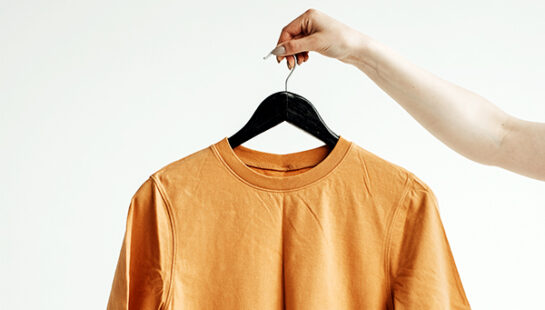Every day we make choices about our wardrobe—what clothes to wear, which brand to buy from, whether to shop the Black Friday sales, if we need another pair of jeans.
As we interact with fashion and what our world tells about the significance of clothes, it’s worth taking time to search the Bible for God’s wisdom, as he’s the one who provides for our physical needs.
Here are six Bible passages on clothing, and how we can relate to fashion as God’s people.
1 Peter 3:3-4
‘Your beauty should not come from outward adornment, such as elaborate hairstyles and the wearing of gold jewellery or fine clothes. Rather, it should be that of your inner self, the unfading beauty of a gentle and quiet spirit, which is of great worth in God’s sight.’
It can be easy to find our self-worth in our appearance, and conversely, to judge other people based on how they look. God is different. While ‘people look at the outward appearance, the Lord looks at the heart’ (1 Samuel 16:7). Fashion and clothing style can be a fun way to express ourselves, but it should never take priority over who we are on the inside, which is of great worth in God’s sight.
Luke 3:11
‘John answered, “Anyone who has two shirts should share with the one who has none, and anyone who has food should do the same.”’
John the Baptist’s ministry was to point to Jesus as Saviour and Lord, paving the way for a new kingdom and God’s plan for salvation. One of the markers of this new kingdom is a genuine change of heart from selfishness to love for others—sharing even the clothes we have so that no one goes without.
1 Timothy 6:6-9
‘But godliness with contentment is great gain. For we brought nothing into the world, and we can take nothing out of it. But if we have food and clothing, we will be content with that. Those who want to get rich fall into temptation and a trap and into many foolish and harmful desires that plunge people into ruin and destruction.’
Contentment is such a valuable spiritual discipline, especially living in a world of consumerism that constantly urges us to accumulate. In his letter to Timothy, Paul writes that being thankful for what we have is far wiser than pursuing wealth for its own sake. This is true when it comes to clothes, and it could be worth asking whether we’re at risk of falling into the fast fashion trap of mindless consumption.
Proverbs 31:22-25
‘She makes coverings for her bed; she is clothed in fine linen and purple. Her husband is respected at the city gate, where he takes his seat among the elders of the land. She makes linen garments and sells them, and supplies the merchants with sashes. She is clothed with strength and dignity; she can laugh at the days to come.’
Clothes are more than fashion; they are also a livelihood. In this Proverb the woman, clothed in fine linen, is praised for creating wealth through her business and caring for her family’s needs. What truly sets her apart, though, is her character. More valuable than the clothes she wears is her strength and dignity, which allows her to look forward to the future with hope and optimism.
James 2:2-4
‘Suppose a man comes into your meeting wearing a gold ring and fine clothes, and a poor man in filthy old clothes also comes in. If you show special attention to the man wearing fine clothes and say, “Here’s a good seat for you,” but say to the poor man, “You stand there” or “Sit on the floor by my feet,” have you not discriminated among yourselves and become judges with evil thoughts?’
It’s human nature to judge people based on how they look. using a person’s clothes to determine their socioeconomic class (perhaps even unconsciously), and then treating someone more favourably if they’re wearing what’s viewed as ‘acceptable’ by our peers. James calls out this behaviour as akin to evil thoughts. Instead, we’re to treat everyone equally, no matter what they’re wearing.
Matthew 6:25-30
‘Therefore I tell you, do not worry about your life, what you will eat or drink; or about your body, what you will wear. Is not life more than food, and the body more than clothes? Look at the birds of the air; they do not sow or reap or store away in barns, and yet your heavenly Father feeds them. Are you not much more valuable than they? Can any one of you by worrying add a single hour to your life?’
‘And why do you worry about clothes? See how the flowers of the field grow. They do not labour or spin. Yet I tell you that not even Solomon in all his splendour was dressed like one of these. If that is how God clothes the grass of the field, which is here today and tomorrow is thrown into the fire, will he not much more clothe you—you of little faith?’
Many people around the world worry about how they will clothe their families, let alone themselves. Even those of us who are financially stable can feel anxious at times. Jesus says that we can trust him to provide for our daily needs, including the clothes we wear. He uses nature as an example: if God beautifully clothes the flowers of the field, how much more will he care for us? Even using the generosity of others to supply what his people need?



